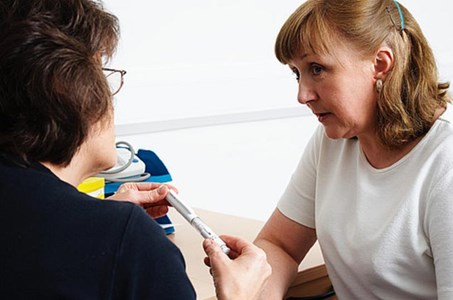The NHS Five Year Forward View for mental health states that co-production should be ‘at the heart of commissioning and service design’. This powerful concept puts patients and citizens on an equal footing with healthcare professionals in the development of services, ensuring solutions meet the needs of the people who are most affected.
To drive this agenda forward and build skills and capabilities in co-production techniques within Arden & GEM CSU and the wider health economy, we embarked on an ambitious project with social innovators, The Young Foundation. Our aim? To explore the use of co-production in a whole system redesign, focusing initially on improving services for people with Long Term Conditions across Worcestershire.
This two-year project brought together patients, carers, members of the public, patient representatives, providers, commissioners, GPs, clinicians and professionals. This has resulted in valuable learning across health and social care about how to involve stakeholders in an open and collaborative environment. It has encouraged discussions; challenged attitudes and cultures of public sector partners; and resulted in a much greater understanding of the needs of patients with Long Term Conditions.
Our ambition is that the knowledge and skills gained through this process will contribute to a wider social movement for change across the NHS - rebalancing power between patients and professionals.

The challenge
Long Term Conditions affect more than 15 million people in England and account for 70% of health and social care budgets (Department of Health - 2010 to 2015 government policy: long term health conditions). While conditions such as arthritis, diabetes and high blood pressure may not be cured, they can be controlled with medication and other therapies.
There is growing recognition within the NHS of the important role that patients can play in self-care and prevention, alongside an increasing demand from patients to be more informed and involved in their own care. However, complexity in the health and social care system presents a significant barrier for patients and a disjointed experience of services.
These challenges represented an opportunity to explore a radically different approach to improving services, resulting in one of the most ambitious co- production projects to date.
Our approach
We commissioned The Young Foundation to support the project, as experts in involving communities in driving change, and worked in partnership with Redditch and Bromsgrove, South Worcestershire and Wyre Forest Clinical Commissioning Groups (CCGs), Healthwatch Worcestershire and the Worcestershire Health and Care Trust.
We held a series of workshops and surveys involving patients, carers and professionals, including interviewing people in their own homes.
Professionals were encouraged to use their experiences as a patient, user or carer, rather than just as clinicians, in a bid to shift the balance of power so that patients were in the driving seat of the process.
The workshops unveiled the challenges that people face and factors which impact on wellbeing, such as immobility, social isolation, reliance on family and mixed experiences with GPs, health and social care.
Crucially, there was overwhelming support for the use of co-production to design services around people’s needs and general consensus that this would generate positive change in key areas such as:
- Shifting from ‘doing to’ to ‘working with’ patients.
- Providing greater focus on prevention and early intervention, more support for self-care and mutual aid.
- Thinking more holistically, looking beyond medical issues to consider wider social, environmental and cultural factors.
- Improving integration between different services and providers.
- Brokering a true partnership and shared responsibility between care providers and service users.
People wanted to see a simplified system with common language and processes, more efficient communication and information sharing, as well as more effective multi-disciplinary working to reduce system blockages. This has led to further work to explore the role of Care Navigators, who help people to access the right care and support.
The outcomes
This work has provided a launch pad to open up conversations about different ways of working. The knowledge gained as a result has challenged current perceptions of cultures, systems, processes and practices, which are now being used to develop new and improved ways of working.
We have developed a set of key recommendations to enable the health and social care economy of Worcestershire to foster greater empowerment, integration and relationships based on mutuality.
The knowledge gained will be used in the ongoing development of services for people with Long Term Conditions, based on a clearer understanding of what needs to change and a greater emphasis on putting the needs of patients at the centre of services.
Through this process, partner organisations have gained valuable confidence in using co-production to get under the skin of complex issues. It has opened people’s minds to the use of co-production in future projects.
Next steps
This project has provided a catalyst for change, which marks a shift from top down, prescribed solutions, to designing services hand in hand with the people that are most affected. With the experience of running a large-scale co-production project, including the opportunities and challenges involved, we are now working to embed these techniques across the wider health economy.
“The workshop reaffirmed my belief that co-production is absolutely the right thing to do if we are to deal with the challenges that lie ahead."
Dr Carl Ellson E, Chief Clinical Officer, NHS South Worcestershire CCGa
